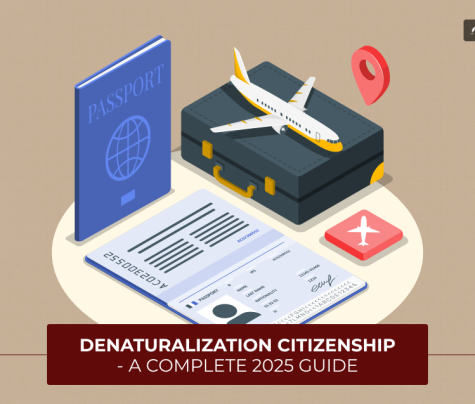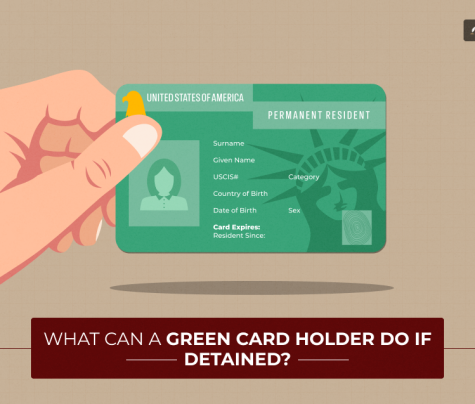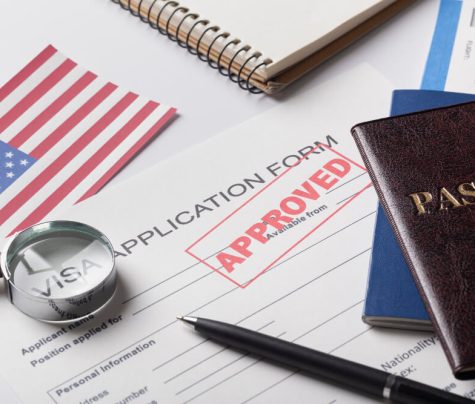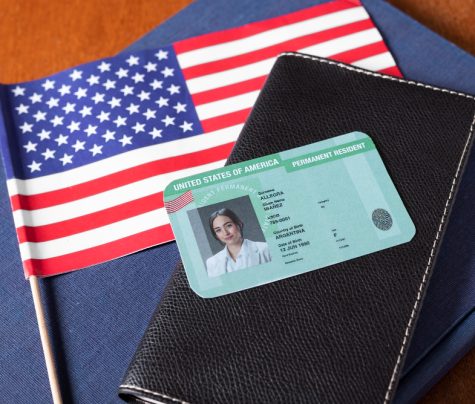
Immigrating to the United States is a significant step for individuals and families seeking better opportunities, safety, or reunification with loved ones. However, navigating the complex family-based immigration process in the United States can be overwhelming. This is where a family based immigration lawyer becomes essential.
While the promise of a new life is compelling, the path to legal immigration is often fraught with obstacles. Families face a complex maze of legal requirements, paperwork, and emotional challenges, which can make the process overwhelming.
Each year, thousands of families in the U.S., including cities like Chicago, rely on this legal pathway to reunite with their loved ones.
In fact, as per the U.S. Department of Homeland Security, around 700,000 family-based green cards were issued in 2022, highlighting how integral family immigration is to the country’s legal immigration system.
Among these applicants, Chicago, a city with a rich immigrant community, sees a significant portion of these applications.
Understanding Family Based Immigration

A family-based immigration lawyer is essential to this intricate procedure. Their area of expertise is assisting lawful permanent residents (LPRs) and citizens of the United States in sponsoring their family members for visas.
This covers more distant relatives falling under the family preference group as well as immediate family members including parents, spouses, and kids. It might be intimidating to navigate the U.S. immigration system.
Form I-130, a petition for an alien relative, is usually filed first. The beneficiary may then apply for a green card after being accepted. This path is not simple, though; it frequently entails a great deal of paperwork, background checks, and occasionally protracted waiting periods.
It might make all the difference to have an experienced attorney on your side. They offer knowledgeable guidance specific to your circumstances, making sure you are aware of your alternatives and needs.
For example, they can assist in obtaining the required paperwork and creating affidavits to properly support your position. Furthermore, it might be very difficult to communicate with government organizations like USCIS.
As your champion, a family-based immigration lawyer handles all correspondence. Furthermore, they resolve any problems that may come up throughout the procedure. This counsel is quite helpful, particularly in the event of issues or during interviews.
The capacity of an immigration lawyer to improve your chances of success is one of the biggest benefits of working with them.
They can maximize the chances of acceptance by presenting your case in the best possible light because they are knowledgeable with immigration rules and regulations.
Issues with family-based immigration frequently include requests for more proof or delays in processing. A competent attorney can effectively handle these challenges, offering answers and keeping you updated at every stage.
Challenges of Family-Based Immigration in the US

Applying for family-based immigration isn’t always the easiest thing to do. Applicants often encounter issues such as:
- Incomplete or incorrect forms that lead to delays or denials.
- Long processing times, especially for preference category visas.
- Understanding and fulfilling eligibility criteria for both the sponsor and the applicant.
But these are not all! Here are some of the challenges that one can face related to family-based immigration in the USA:
Lengthy Processing Times
One of the most frustrating challenges families face is the lengthy processing times for immigration applications. Family-based petitions, such as those for green cards, often involve extensive waiting periods.
For instance, U.S. citizens petitioning for relatives from countries like Mexico, India, or the Philippines may encounter delays of several years due to visa backlogs and annual country caps.
Temporary visas, like the K-1 visa for fiancés or visas for spouses of U.S. citizens, are also subject to delays, especially during periods of high demand or limited staffing at U.S. Citizenship and Immigration Services (USCIS).
These delays can cause emotional distress for families as they endure prolonged separations with little certainty about when they will be reunited.
Complex Paperwork and Documentation
The U.S. immigration process requires extensive paperwork; even minor mistakes can lead to significant delays or denials.
Form I-130 (Petition for Alien Relative) or Form I-485 (Application to Adjust Status) require applicants to provide accurate information and detailed evidence, including birth certificates, marriage licenses, proof of financial support, and photographs.
Compiling these documents can be particularly challenging for families who have experienced displacement or have limited access to official records.
Additionally, misunderstandings about form instructions or legal requirements can result in incomplete applications, leading to requests for additional evidence or outright rejection.
These bureaucratic hurdles can feel insurmountable without guidance for families already under stress.
Financial Strain
The financial costs associated with the U.S. immigration process can place a heavy burden on families.
Filing fees for immigration petitions and applications often run into the thousands of dollars. For example, the fee for filing a Form I-130 is $535, and adjusting status through Form I-485 costs $1,225, including biometric fees.
Beyond filing fees, there are additional costs for travel, medical examinations, and, in many cases, legal representation.
For families already living on limited incomes, these expenses can cause financial strain. Sponsors must also meet specific income thresholds to file an affidavit of support, further complicating the process for lower-income families.
The financial burden is often compounded by the need to maintain a stable income while managing the stress and uncertainty of the immigration process.
Language and Cultural Barriers
For many families, language barriers make the immigration process even more challenging. Immigration forms, legal instructions, and interviews are conducted in English, which can be difficult for non-native speakers to navigate.
Misunderstanding legal terminology or failing to communicate with USCIS officials properly can lead to errors or delays in processing applications.
Cultural differences also come into play, primarily when families must provide evidence of relationships that may not conform to typical U.S. standards.
For example, extended family members play a role in raising children in some cultures, but proving a legal parent-child relationship can still be difficult under U.S. immigration law.
These cultural and linguistic challenges underscore the need for professional support to ensure families can effectively advocate for their rights.
Proving Family Relationships
One of the primary requirements for family-based immigration is proving the legitimacy of family relationships.
Spouses must demonstrate their marriage is genuine by submitting evidence such as joint bank statements, photographs, and affidavits from friends and family.
Additional documentation may be required to establish legal and biological connections for children, stepchildren, or adopted children.
Changing Immigration Policies
Immigration policies in the U.S. are frequently subject to changes due to shifts in presidential administrations or court rulings.
Families navigating the process may face uncertainty as new policies are introduced or existing programs are rescinded.
For example, changes to public charge rules, travel bans targeting specific countries, or adjustments to programs like Deferred Action for Childhood Arrivals (DACA) can directly impact a family’s ability to immigrate or remain in the U.S.
Emotional and Psychological Stress
The immigration process is not only a legal and logistical challenge but also an emotional one. Families separated by borders experience deep emotional strain as they await reunification.
The uncertainty of long processing times, the possibility of application denials, and the fear of deportation for undocumented family members all contribute to anxiety and stress.
The U.S. immigration process is complex, lengthy, and often overwhelming for families. From navigating extensive paperwork and financial costs to overcoming language barriers and policy changes, families face numerous challenges in their journey toward reunification and stability.
However, with the support of an experienced Chicago family immigration lawyer, families can successfully overcome these obstacles and achieve their immigration goals.
For those seeking guidance, a trusted legal professional can make all the difference in securing a brighter future for their loved ones.
Get a Family Based Immigration Lawyer
In conclusion, family-based immigration is vital for many individuals seeking to reunite with their loved ones in the United States.
Thousands of people file for family-based immigration yearly, particularly in cities like Chicago, where the demand is significant.
According to recent statistics, Chicago alone sees thousands of applications annually, reflecting the deep desire of families to be together.
Therefore, if you’re considering family-based immigration in the U.S., enlisting a Family Based Immigration Lawyer is essential.
They simplify the process, enhance your chances of success, and provide peace of mind during a stressful journey. With their expertise, you can focus on what truly matters—reuniting with your family.
Read Also:
- Understanding the UK Points-Based Immigration System
- EB-5 Visa Lawyer: The BEST Immigration Lawyer for Investors?
- The 7 Best Qualities to Look for in a Great Immigration Lawyer











0 Reply
No comments yet.